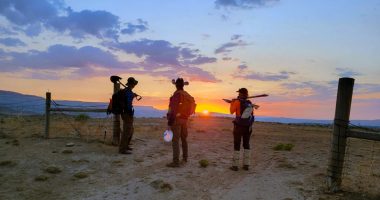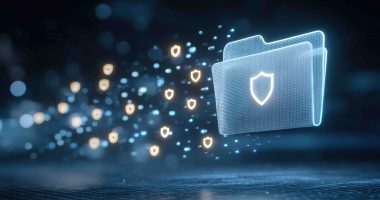- The ‘service-as-subscription’ market continues to grow and diversify worldwide.
- Globally, Mobility-as-a-Service (MaaS) is expected to exceed US$230 billion by 2025
- Carly (CL8) launched in 2019 as Australia’s only listed car subscription provider
- Carly subscribers pay one monthly fee covering insurance, registration, servicing etc — everything but the fuel
- Subscribers are drawn by convenience, the ability to “try before you buy”, the capacity to give up the subscription at any time, and the ability to avoid long-term financial commitment
- The take-up of car subscriptions is popular with Millennials and Gen Z
- Carly’s adaptive asset management style has attracted shareholdings and support from major motor industry players
- Overall revenue, income per subscriber and per transaction are all growing strongly
They grow up so quickly, don’t they?
Only a few years ago, the subscription market — after generations stuck in the infancy of magazine and gym subscriptions — began to show signs of growing up. At first, subscribers were content to listen to Taylor Swift on Spotify, watch Frozen on Netflix, get their software freshly updated automatically, and maybe ride a scooter now and then.
But in recent times, the subscription business has had a massive growth spurt. These days people are relying on subscription services to provide their daily meals, cosmetics, razor blades and shaving gear, every type of alcohol, veterinary and medical services, and even toilet paper.
Enter Carly
Into this burgeoning subscription-driven world, where instant gratification without long-term commitment is the new normal, comes Australia’s first flexible car subscription service.
Launched in March 2019, Carly is set to become an integral part of Australia’s Mobility-as-a-Service (MaaS) offering — participating in a global market expected to exceed US$230 billion (A$330 billion) by 2025.
Subscribers to Carly can choose their car make and model, and one monthly recurring payment covers all expenses, including insurance, registration, servicing and repairs. All the driver has to do is add fuel (or for EVs, plug-in).
Carly provides subscribers with the use of a car without the long-term burden of debt or ownership, offering a flexible alternative to finance or outright purchase.
The Carly market
So who would drive a Carly car? Quite a few people, it turns out.
A recent survey by Omnipoll revealed that 38 per cent of Australians would consider subscribing to a car rather than purchasing or leasing, and no less than 69 per cent of Gen Z and 50 per cent of Millennials indicated a preference for car subscription.
Carly CEO Chris Noone told The Market Herald that people turn to Carly for a broad range of reasons.
“Some are interested in trying different car makes and models before they buy — particularly those who are looking for reassurance before buying an EV. People who are in Australia for the medium term — think students or business travellers on contracts — also find the subscription model expedient,” he said.
“And then there are those who are all about convenience, who just want everything taken care of. A growing cohort of wise consumers is wary of taking on a car loan while there is talk of recession or increasing unemployment.”
Carly offers subscribers (and investors) a unique market niche, nestling in between car share users, who typically use the vehicle by the hour or day, rental customers who rent for one to 14 days, and vehicle owners, who commit for upwards of two years. The average Carly subscription is just over five and a half months.
The need for a reliable car subscription service has clearly convinced some significant automotive businesses, with SG Fleet (SGF), RACV and Turners Automotive (TRA) all taking significant shareholdings in the company.
An agile operational approach
The Carly board and executive team represent extensive experience in the automotive industry, with team members coming from Volkswagen, Hyundai, SG Fleet and Turners Automotive. Together, this team has formulated a unique hybrid supply model designed to efficiently expand the vehicle fleet regardless of market conditions.
The Hybrid Fleet Model allows the company to switch between an owned fleet (asset heavy) and a third-party owned fleet (asset light) approach depending on market conditions.
This flexibility allows the company to optimise the growth of the fleet according to business and market conditions, by relying more heavily on buying and financing when vehicles are in short supply (such as now due to COVID, Ukraine and microprocessor issues) and monetising vehicles owned by auto manufacturers, dealers and fleet management companies when subscription delivers a recurring revenue stream that is more attractive than discounting cars to sell.
This approach is all about maximising margins and ensuring fleet availability.
Mr Noone said at this stage, fleet growth was the company’s priority.
“We know that when we add cars to our fleet we can increase revenue quite quickly,” he said.
Mr Noone added that the company secured the funding necessary to expand the fleet in June 2022 and achieved impressive growth and that further asset finance facilities were being sought in 2023.
Industry partners
One of Carly’s major strengths going forward is the powerful industry partnerships the company has forged with some of the automotive industry’s heaviest hitters.
SG Fleet, Carly’s second-largest shareholder, is collaborating with the company on demand referral, as well as vehicle supply, while number three shareholder Turners Automotive Group utilises the Carly platform for its subscription business in New Zealand.
Partnerships or collaborative deals have been struck with Hyundai, Peugeot, Subaru and Genesis as well as Suttons, suppliers of new Mitsubishi, Renault, Kia, Subaru and Nissan vehicles, and Alto Group, which provides new Audi and Skoda vehicles.
Fleet operators such as Orix, Custom Fleet and Interleasing have provided near-new vehicles, while Driva — Australia’s leading car loan platform — provides referral customers.
With a raft of industry backers betting on Carly and the success of the car subscription market, it’s easy to get infected with the optimism that runs through Carly’s investor communications. But how are they actually going?
Putting the pedal to the metal
We’ve all had a tough couple of years, and growing an automotive company at a time when so many people were compelled to stay at home has been tough. But Carly actually prospered during this period, recording consecutive quarterly increases in revenue since launch in 2019 — and this growth continues today.
From the December 2021 to December 2022 quarters, Subscription Revenue surged by 72 per cent, while costs decreased overall.
In particular, Advertising and Marketing costs decreased by 56 per cent, despite the growth in revenue. Subscription revenue, as a portion of subscription transaction value, is at an all-time high of 60 per cent for the December 2022 quarter.
These results have been driven by Carly’s ability to buy cars to grow its fleet when many people are waiting up to 12 months for new car deliveries. Further, when Carly receives deliveries of new cars, it gets them on the road quickly, achieving a very high 87-per-cent fleet utilisation
Given the continued acquisition of vehicles and the apparent reliability of demand for the service, combined with the confidence the industry has in the company’s capacity to meet that demand, it’s difficult to see Carly doing anything other than continuing its accelerated trajectory for the foreseeable future.








